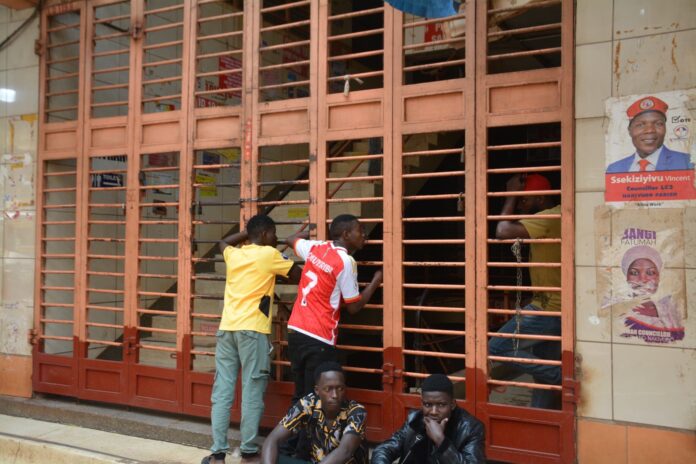The Kampala traders have yet again launched demonstrations against the heavy taxation after their planned meeting with the president failed to take place on July 31, 2024.
However, it appears there is confusion surrounding the demonstrations since some of the traders are not interested but are being forced to.
A section of traders prefer to work as they await the president’s meeting, while others have chosen to close their businesses in protest.
What is happening is unfair to both the traders and the country’s revenue, and the government should intervene and listen to these traders, even to those who are not interested in the demonstrations.
The methods of mobilization and enforcement have become harsh. Some leaders have connived with landlords to close buildings, even when some tenants are not interested in the strike.
It should be noted that some of these tenants paid rent for many months in advance, and they now cannot access their shops. On top of that, the lost days won’t be compensated.
Again, most of the traders whose shops have been forcefully closed are trading below the VAT threshold of UGX 150 million.
These are the same traders who have not paid rent in advance, and their only hope is the money they make on a daily basis. How will they afford rent if the landlords have locked them outside their businesses?
It is unfair to forcefully involve them in a strike where they practically do not qualify and are not interested.
Some of the traders are being threatened by the strike leaders, saying they won’t be able to get loans from the traders’ associations in the future if they do not participate in these demonstrations.
It should also be noted that most of these traders are operating on loans, and it will be hard for them to repay the loans when they are not working.
Whereas the pro-demonstration traders may have genuine reasons like heavy taxation, poor enforcement methods, and others, it is important to consider the plight of those against the strike and let traders participate willingly.
The coercion will only escalate things and affect both the business relationship and the economic environment.
The government needs to intervene and protect those who are not interested in the strike as they wait for the meeting with the president to take place.
Let more sensitization and dialogue take place to have the issues resolved to have a win-win situation; otherwise, the traders will not have better services from the government without paying taxes, but the taxes have to be fair and considerate.
The previous demonstrations over the EFRIS system showed a lack of sensitization, interference by politicians to cause confusion, as well as poor enforcement methods by the Uganda Revenue Authority.
If this is tackled, consensus will be reached, and the business situation will return to normal.
However, I need to understand one thing from the landlords: if you have closed arcades on the first day of the month, will you be asking for August rent? If you do, how do you expect your tenants to pay if you have locked them out?















